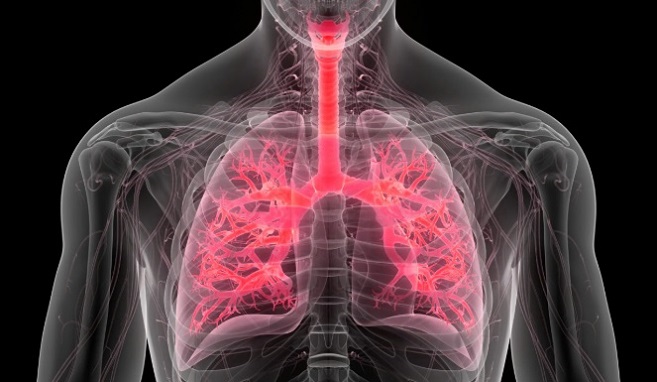Nikhil Prasad Fact checked by:Thailand Medical News Team Aug 10, 2025 6 months, 2 weeks, 41 minutes ago
A Growing Concern After the Pandemic
Researchers from the Oklahoma Center for Respiratory and Infectious Diseases and The Lundberg-Kienlen Lung Diseases and Infection Laboratory at Oklahoma State University are warning about one of the most serious long-term complications seen in COVID-19 survivors – post-COVID-19 pulmonary fibrosis (PC19-PF). This condition is marked by progressive lung scarring that can cause lifelong breathing problems, fatigue, and reduced quality of life. While many people recover fully from COVID-19, this
Medical News report reveals that a significant number continue to face lingering lung damage that may worsen over time.
 Silent Scarring After COVID-19 Threatens Long Term Lung Health
Who Is Most at Risk
Silent Scarring After COVID-19 Threatens Long Term Lung Health
Who Is Most at Risk
The study explains that the severity of the original COVID-19 illness is the biggest factor. People who were hospitalized, especially those in intensive care or on mechanical ventilation, are much more likely to develop lung scarring. Older age, being male, having chronic illnesses like diabetes, high blood pressure, or COPD, and lifestyle habits like smoking can further raise the risk. Interestingly, some COVID-19 variants, such as Delta, were linked to more severe lung damage compared to Omicron, which generally caused milder disease.
How It Is Detected
Doctors diagnose PC19-PF through a mix of patient symptoms, breathing tests, and lung scans. Many affected individuals report ongoing shortness of breath and dry cough months after infection. Breathing tests often show reduced lung capacity, while CT scans reveal patterns such as “ground glass” haziness, fibrotic bands, or honeycomb-like changes in the lung tissue. In severe cases, oxygen levels remain low even at rest.
What Happens Inside the Lungs
The research shows that SARS-CoV-2 can cause lasting injury to alveolar type II cells – the cells responsible for repairing lung surfaces. When these cells are damaged, the normal healing process is disrupted, leading to abnormal “transitional” cells that cannot restore healthy lung tissue. Persistent inflammation, overactive immune cells, and chemical signals like TGF-β then trigger fibroblasts to produce excess collagen, stiffening the lungs. Blood vessel injury and mitochondrial dysfunction further add to the damage.
Possible Biomarkers and Early Warnings
Scientists have identified certain blood markers that could predict fibrosis risk, including high levels of C-reactive protein (CRP), lactate dehydrogenase (LDH), and specific cytokines such as IL-6 and IL-1α. Elevated levels of a lung injury marker called KL-6 and certain collagen proteins were also common in PC19-PF patients. Monitoring these indicators could help doctors catch the disease early.
Treatment Approaches Under Investigation
Currently, there is no approved cure for PC19-PF, but treatments for other types of lung fibrosis, such as pirfenidone and nintedanib, are being tested. These drugs aim to slow scarring and improv
e lung function. Anti-inflammatory treatments, including corticosteroids and drugs targeting specific immune pathways, may help in certain cases, but more studies are needed. The researchers emphasize that early detection, close follow-up, and tailored therapy could make a big difference for those at risk.
Looking Ahead
The findings make it clear that for many COVID-19 survivors, the pandemic’s effects are far from over. Even after the infection is gone, silent lung scarring can continue to progress, making everyday activities harder. Raising awareness, improving long-term monitoring, and developing targeted treatments are crucial steps to protect those affected. While some patients may experience gradual improvement, others could face permanent damage, highlighting the urgent need for more research into prevention and repair strategies.
The study findings were published in the peer reviewed journal: Viruses.
https://www.mdpi.com/1999-4915/17/8/1098
For the latest COVID-19 news, keep on logging to Thailand
Medical News.
Read Also:
https://www.thailandmedical.news/news/covid-19-is-not-mild-as-most-will-develop-lung-fibrosis-10-percent-of-all-lung-transplants-in-u-s-now-go-to-post-covid-patients
https://www.thailandmedical.news/news/breaking-sars-cov-2-virus-produces-microrna-that-causes-lung-scarring-by-disabling-key-immune-protein
https://www.thailandmedical.news/news/breakthrough-phytochemical-compound-could-transform-pulmonary-fibrosis-treatment
